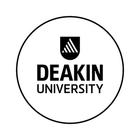Bachelor of Laws / Bachelor of Politics, Philosophy and Economics
Bachelor of Laws / Bachelor of Politics, Philosophy and Economics
Complement an industry-leading legal education at one of Australia’s top law schools with an in-depth understanding of how power, incentives and ethics influence real-world decisions by studying Deakin’s Bachelor of Laws/Bachelor of Politics, Philosophy and Economics. Your knowledge of political systems, economic ways of thinking, and ethical and moral principles,…
Categories
COURSE DESCRIPTION
Complement an industry-leading legal education at one of Australia’s top law schools with an in-depth understanding of how power, incentives and ethics influence real-world decisions by studying Deakin’s Bachelor of Laws/Bachelor of Politics, Philosophy and Economics. Your knowledge of political systems, economic ways of thinking, and ethical and moral principles, alongside a solid foundation of legal skills from Deakin Law School, will open up a range of exciting career opportunities.
Tackle the global problems experienced by business, government and society with your understanding of political issues ranging from inequality to environmental sustainability and beyond. Develop specialised knowledge of how law, business, government and consumers shape society and graduate with a unique, practical skill set to enact change.
Deakin Law School provides a strong foundation in all major areas of law, including:
contract law
criminal law and procedure
torts
property law
equity and trusts
constitutional law
administrative law.
With an emphasis on developing analytical thinking and problem-solving skills, this unique course will teach you to address complex legal issues experienced in areas including, but not limited to:
environment
climate change
sustainability
population
ageing
health/mental health
international trade
economic strategy
the economic and institutional drivers of inequality, poverty and conflict.
This combined course gives you the opportunity to complement your studies in law with a focus on two streams chosen from the disciplines of:
philosophy
politics and policy studies
economic policy.
Learning from leading academics and researchers, these streams of study allow space for deep and creative thinking while building tangible skills that enable you to make an impact on society.
You will understand the nature of public decision-making, explore resource management issues, and get the skills to analyse business problems in line with social justice. This course balances the big picture view of public problems while developing your professional and work skills.
Graduate ready to pursue roles in the public or private sector with the added knowledge, expertise and practical skills to succeed in a range of areas involving government policy, strategy, consulting or business management.
Career outcomes
Graduates of the Bachelor of Laws/Bachelor of Philosophy, Politics and Economics have the qualifications and experience to work in a wide range of career areas, including:
business
community legal centre consulting
diplomacy
economics
education (a law academic or legal studies teacher)
government lawyer or policy advisor
industrial relations
in-house lawyer for businesses and corporations, including start-up companies
international relations
media/journalism
police prosecutor
private legal practice
policy analysis
politics
research.
EDUCATIONAL INSTITUTION
Deakin University is ranked in the top 1% of universities worldwide (ARWU). It is a global leader in many areas of study including accounting and finance, business, engineering, education, nursing, sport science, and sport management. It is known for its industry-based learning, with all degrees offering the opportunity for work placements. Deakin has four campuses across the state of Victoria, offering high-quality teaching and first-rate facilities. Our students love studying here – that is why Deakin University has been ranked #1 for course and student satisfaction in Victoria for 13 years (Australian Graduate Survey 2010–2015, Graduate Outcomes Survey 2016–2022 (GOS)).




